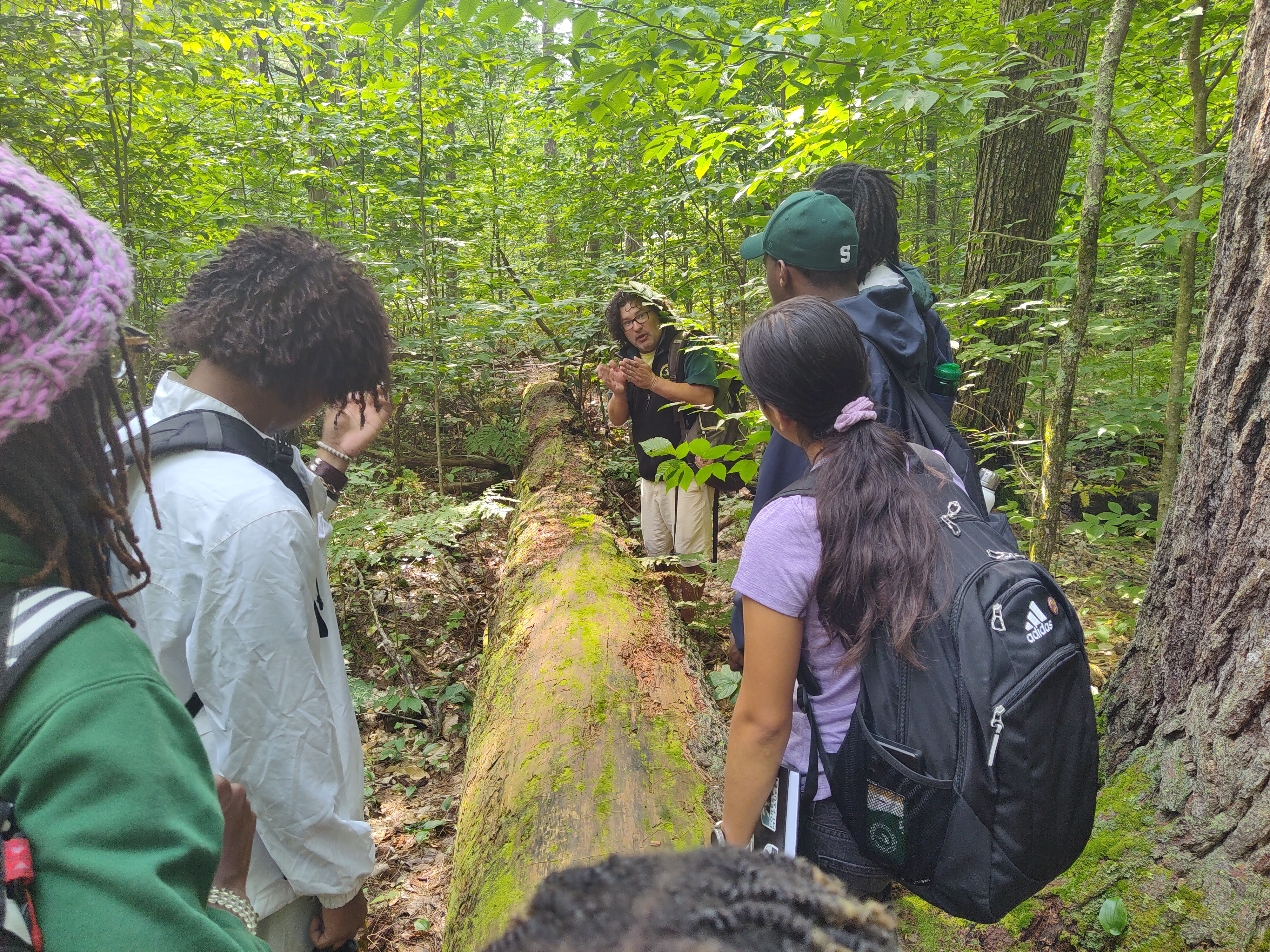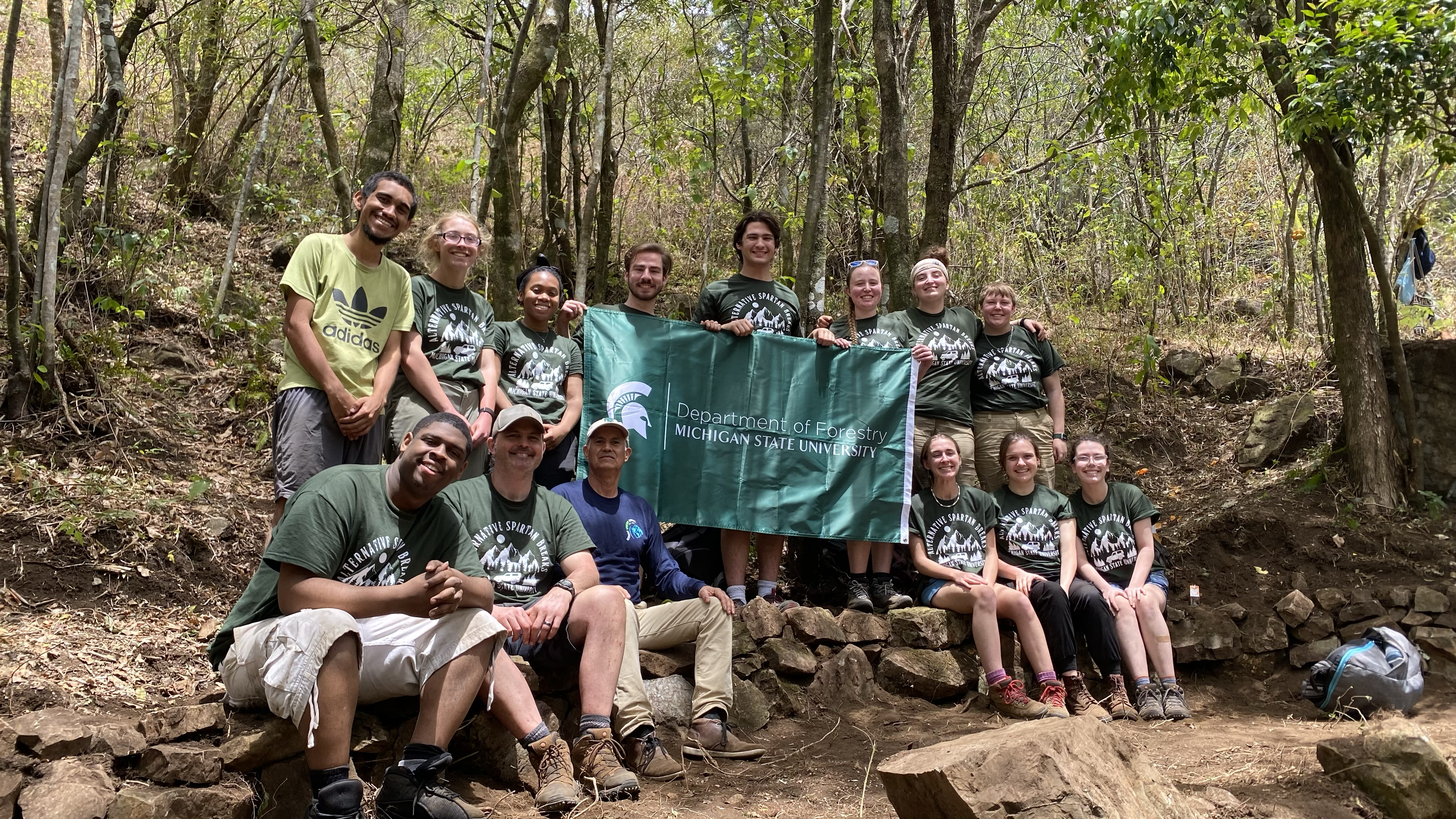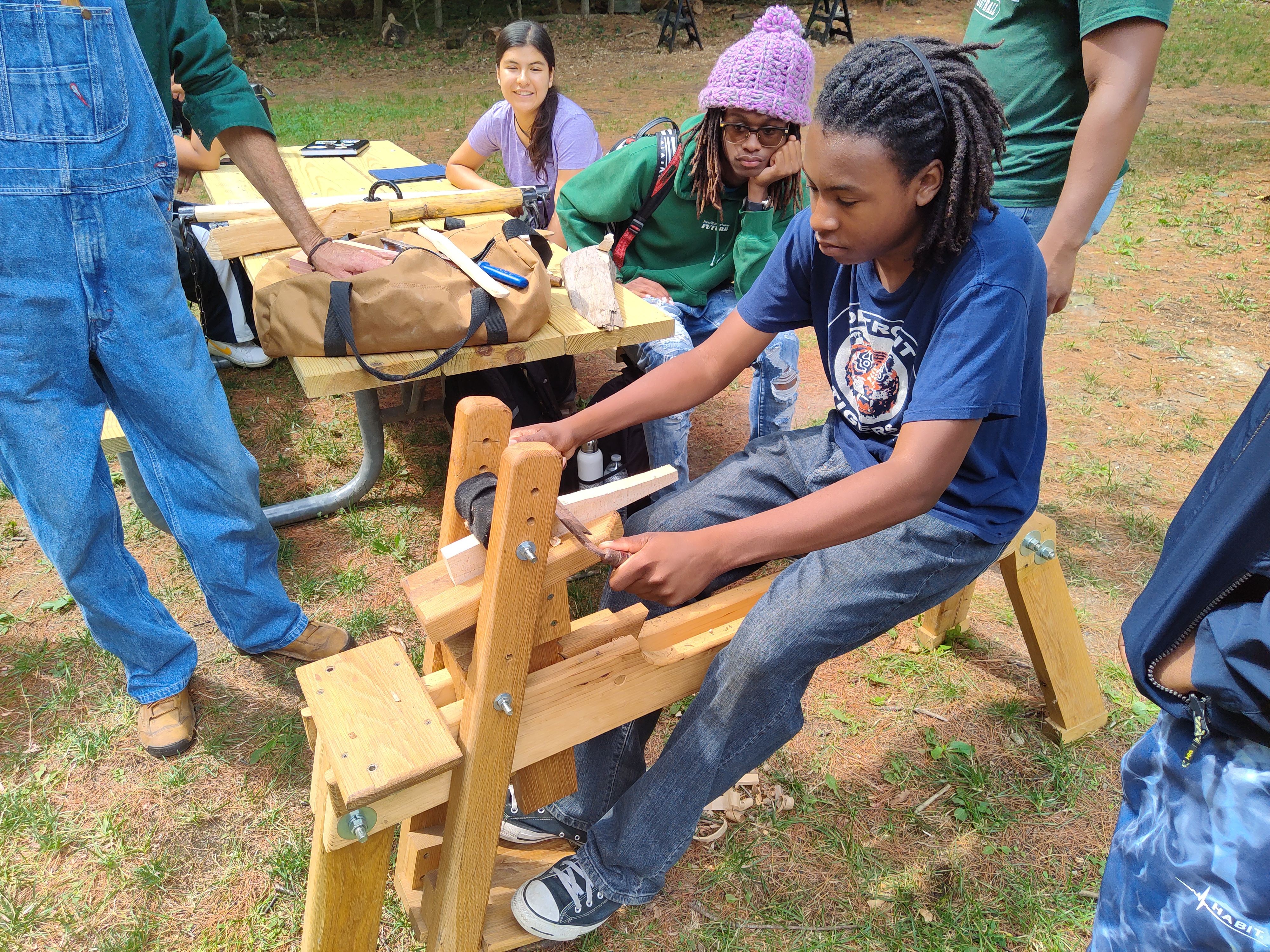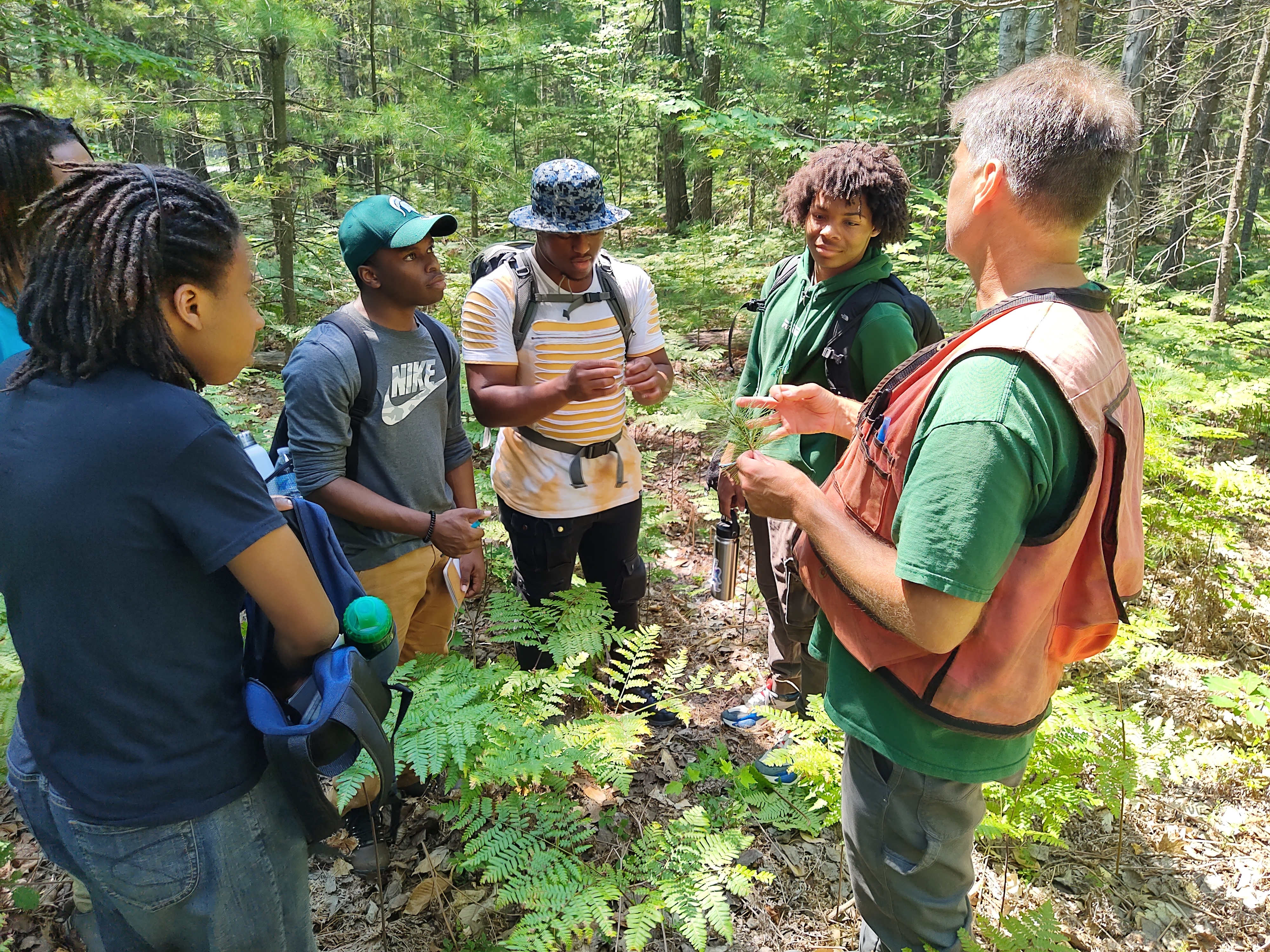Forests are for everyone: improving access to natural resources education
Inclusivity has been a goal of the Department of Forestry at Michigan State University for many years. Access to an education in natural resources and the forestry field should not be limited by geographic location, economic background, or other factors.

Forestry undergraduate advisor Justin Kunkle has sought to bridge gaps between prospective students and the MSU Forestry undergraduate program since he began the role in 2016. Kunkle worked diligently to form partnerships with Detroit-based schools and youth development programs to introduce students to the areas of environmental stewardship, natural resource management and conservation.
As part of these efforts, Kunkle and his partners were awarded a grant through the United States Department of Agriculture (USDA) Multicultural Scholars Program (MSP). Funding through this program enables the department to recruit and train a new generation of highly-skilled, multicultural professionals in forestry and natural resources. A. large portion of the funding provides four years of in-state tuition for students participating in the program. 
The overarching goal of the program is to expand and sustain long-term professional training that will equip underrepresented minority (URM) students with the necessary skills to be leaders and stewards in sustainable forest management.
The supporting objectives of this project are to: build on the existing successful multicultural scholars program to further increase enrollment of URM students in the Forestry program at Michigan State University; establish a faculty-mentored research training experience to broaden forestry scholars critical thinking and problem-solving skills; enhance leadership skills through scholar-created outreach programming and peer mentoring for youth development organizations serving minority high school students; and develop undergraduate intercultural competence through the creation of a service-learning study abroad program to Costa Rica. 
The main pillars of the program include:
- Recruiting Partnerships
- Bridge Programs
- Study Away Program
- Support Networks at MSU
- Faculty-mentored Research Assistant Program
- Leadership Development
- Preparation to Enter the Workforce
The first cohort of the MSP program, beginning in 2019, included students Rachel Ray, Davien Graham, Derrick Wade, Dylan Nelson, and Lavoness Bolds. The program began with a 10-day study-away program during the summer before their first semester at MSU. Scholars travelled throughout the state of Michigan exploring a variety of forested ecosystems, including urban green infrastructure. Through this study away experience, students were introduced to diverse career pathways in forestry in urban, rural, and suburban areas. Students networked with current forestry professionals who can provide internship or other practicum experiences during the remainder of their careers.
Reflecting on his time in the MSP Program, Graham recalls “I was shown so many different aspects and iterations of forestry and conservation in general, and due to the program, my idea of what it was I could and would do with forestry changed drastically.”
The newest cohort of students, beginning in 2024, recently completed the Study Away Program, which again took them all over the state. Scholars had a whirlwind tour of the multifaceted world of forestry, including urban and community forestry in cities, hands-on experience with tree planting, measuring, and pruning, chainsaw skills, technology and manufacturing, lumber mills, wildlife education, waterfalls, and making maple candy from maple syrup tapped from trees at the MSU U.P. Forestry Innovation Center. 
“I truly enjoyed meeting and working with the MSP students this summer. I worked with some members of my lab to teach the scholars urban tree inventory methods, and the scholars helped us by providing helpful feedback on educational signage we are preparing for urban forestry sites in Detroit,” said Asia Dowtin, Assistant Professor of Urban Forestry.
This trip was filled with a lot of “firsts” for many of the students in the cohort. Before enrolling in the forestry program, Janie Chavies wasn’t sure what she wanted to do in life. Deciding to take a leap of faith, Chavies said “I decided that I’d do something no one I know has ever done, which was work with the environment.” Chavies enjoyed visiting many places she had never heard of and canoeing for the first time. After completing the 10-day experience, Chavies says “I now know that Forestry is what I want to do and this is the life I want to live.” Chavies is looking forward to similar experiences like this in her undergraduate future. “This trip has shown me an entire new world and has helped me decide what I want in life,” said Chavies.

“I had a great time working with this engaging group of students during the Study Away Program, spending the day looking at a variety of forest ecosystems in northern Michigan. I have all seven students this semester in FOR 204 (Forest Vegetation) and this program provides such a great opportunity for me to get to know the students ahead of their college careers,” said David Rothstein, Professor of Forest Ecology.
Corey McKenzie also began his foray into the field of forestry with some trepidation, but this trip provided a feeling of certainty. “Being with everyone on those ten days affirmed that I do belong and have a spot. As I continue along my journey of achieving my goals, I will never forget the incredible experience this was,” said McKenzie.
CANR faculty and staff supporting the USDA NIFA grant include:
- Stephanie Chau, Assistant Director for Undergraduate Diversity, CANR
- Asia Dowtin, Assistant Professor, Department of Forestry
- Emily Silver, Associate Chairperson, Director of Graduate Studies, and Associate Professor, Department of Forestry
- Justin Kunkle, MSP Project Director; Director of Undergraduate Studies & Academic Advisor, Department of Forestry
- David Rothstein, Professor, Department of Forestry
- Jarred Saralecos, Instructor, Forest Education and Outreach, Department of Forestry
This work is supported by the Higher Education Multicultural Scholars Program [grant no. 2023-38413-41456/project accession no. 1031394] from the USDA National Institute of Food and Agriculture.



 Print
Print Email
Email

